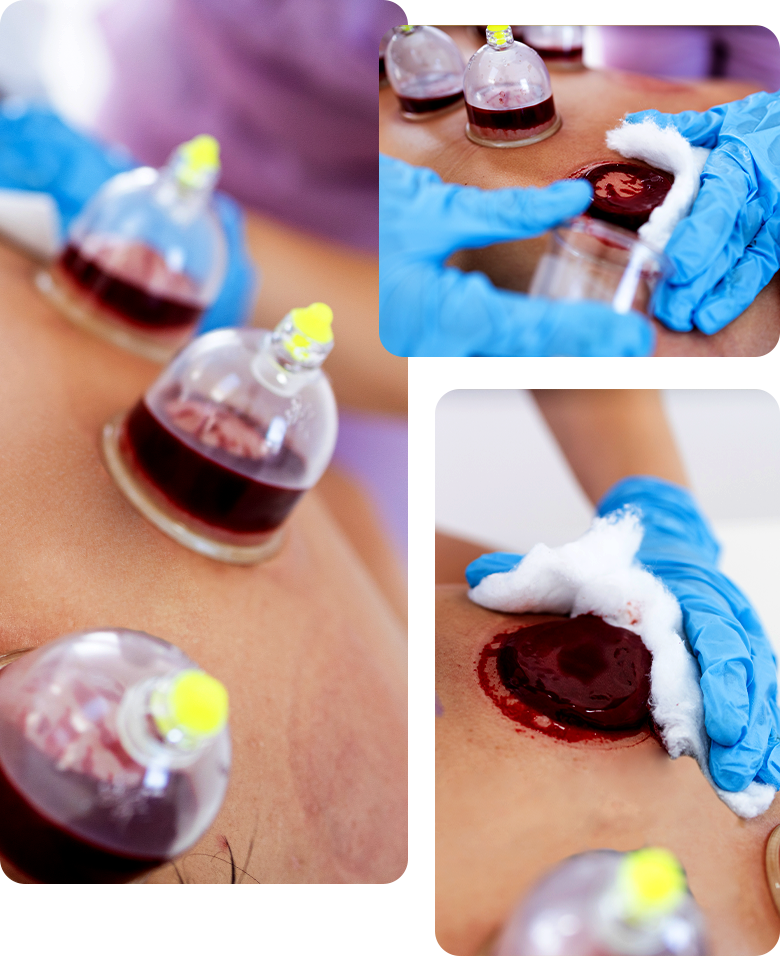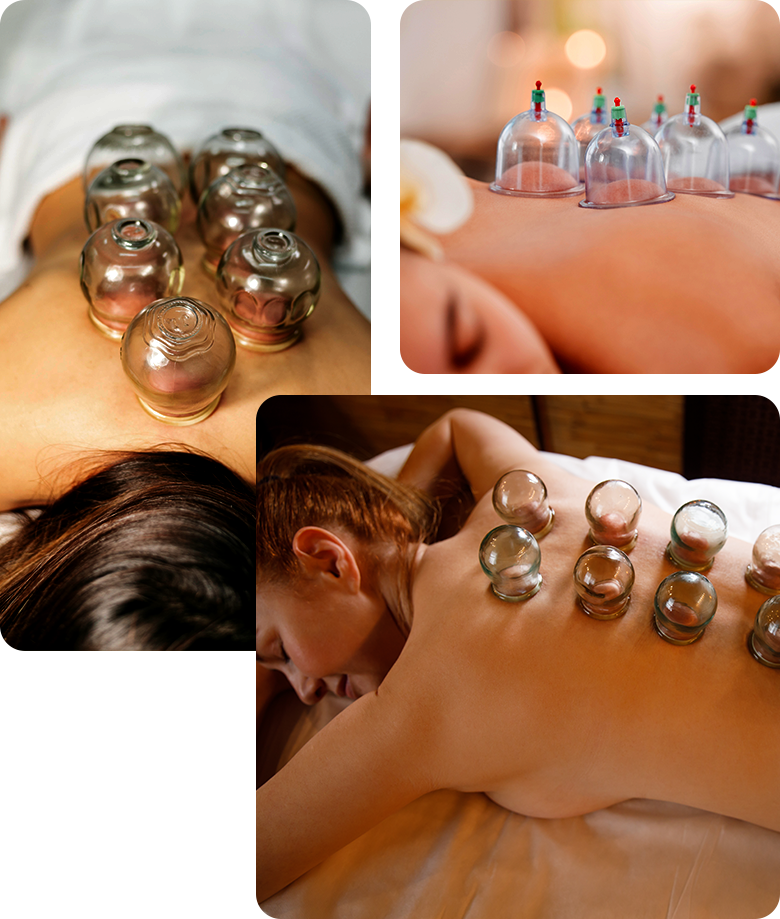
Hijama, also known as wet cupping therapy, is an ancient form of alternative medicine that involves creating a vacuum on the skin surface using cups to stimulate blood flow and draw out toxins. Small, light cuts are made on the skin surface to release this blood which provides the full beneficial effects of the therapy.
Here are some of the benefits of hijama:
Pain relief and detoxification
Improved blood circulation
Relaxation and stress reduction
Boosting the immune system
The Islamic History of Hijama
Hijama, also known as "cupping therapy," has a rich history deeply rooted in Islamic tradition. It is a practice that dates back to the time of the Prophet Muhammad (peace be upon him), who not only recommended it but also personally underwent cupping. This historical significance makes hijama not just a therapeutic technique but also a spiritual practice for many Muslims.
The practice of hijama involves the placement of cups on specific points of the body, creating a vacuum that draws out impurities and toxins from beneath the skin's surface. This process is believed to stimulate blood circulation, promote healing, and boost the body's natural self-healing mechanisms.
Pain Relief
Some people believe that hijama can alleviate various types of pain, including muscle and joint pain. It is thought to work by improving blood circulation to the affected area and reducing muscle tension.
Detoxification
Advocates of hijama suggest that it helps remove toxins from the body. The suction created by the cups is believed to draw out impurities from the blood and tissues.
Improved Blood Circulation
Cupping therapy is thought to promote better circulation, which can enhance the delivery of oxygen and nutrients to tissues and facilitate the removal of metabolic waste products.
Relaxation and Stress Reduction
Many people find cupping therapy to be relaxing and believe it can help reduce stress and anxiety. The gentle suction and the warmth of the cups can create a soothing effect.
Boosting the Immune System
Proponents suggest that cupping therapy can enhance the immune system by stimulating the production of white blood cells and promoting overall health and well-being.
Medical Conditions
Some individuals use hijama as a complementary therapy for specific medical conditions, such as asthma, migraines, and digestive disorders. However, its effectiveness is not well researched.

Philosophy of Hijama
The philosophy of hijama in Islam is deeply rooted in Islamic tradition, and it is often practiced as a form of traditional Islamic medicine. This practice, also known as cupping therapy, is believed by many Muslims to have prophetic and Quranic support.
Here are some key aspects of the philosophy of hijama in Islam: